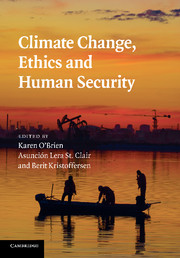1 - The framing of climate change: why it matters
Published online by Cambridge University Press: 01 June 2011
Summary
Introduction
Climate change is now considered by many to be the most complex and serious environmental issue that human societies have ever faced. The science is unequivocal – human activities are influencing the climate system, contributing to increases in global average air and ocean temperatures, the widespread melting of snow and ice, and rising average global sea levels (IPCC, 2007). Well-known economists have shown that there are instrumental reasons to immediately minimise CO2 emissions (Stern, 2007), and these arguments are underscored by global assessments of the potential human impacts (UNDP, 2007/2008; Global Humanitarian Forum, 2009). Some voices argue that climate change is a cultural phenomenon that is reshaping understandings of humanity's place on Earth (Hulme, 2009), while others warn that ‘[w]e do not seem to have the slightest understanding of the seriousness of our plight’ (Lovelock, 2009: 4). Al Gore's famous statement that ‘the truth about the climate crisis is an inconvenient one that means we are going to have to change the way we live our lives’ (2006: 286) captures the essence of the climate change challenge. The problem is that we have very little idea about what exactly needs to be changed and why.
Although it has taken the global community and the general public many years to acknowledge the inconvenient truth pointed to by Gore, the urgency of responding to the climate crisis is becoming increasingly evident.
- Type
- Chapter
- Information
- Climate Change, Ethics and Human Security , pp. 3 - 22Publisher: Cambridge University PressPrint publication year: 2010
References
- 11
- Cited by



